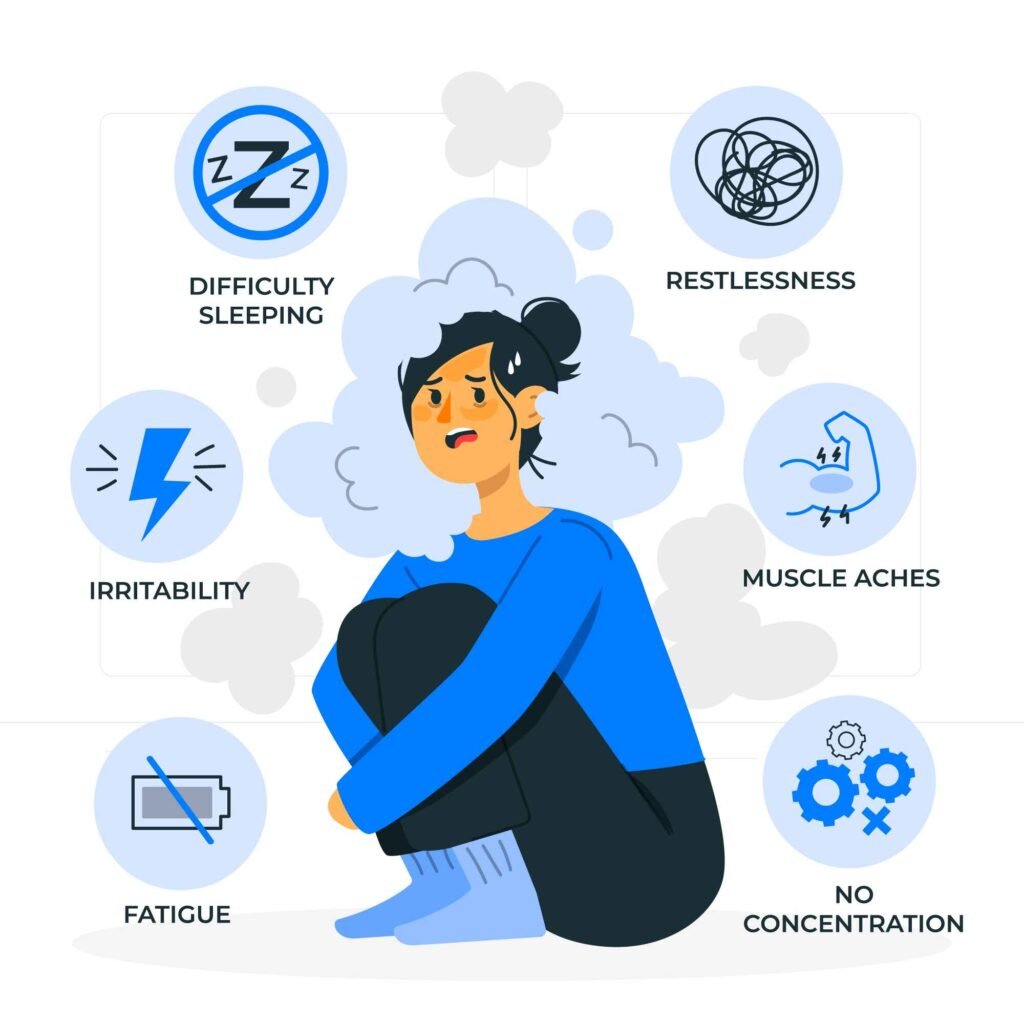
The Role of Self-Compassion in Stress
Introduction: Understanding Self-Compassion and Its Connection to Stress
Stress has become a pervasive part of modern life, affecting mental, emotional, and physical health. While many people turn to external solutions like exercise, mindfulness, or therapy to manage stress, an often-overlooked approach is self-compassion.
Self-compassion involves treating yourself with the same kindness, understanding, and forgiveness you would offer a close friend. Developed by psychologist Dr. Kristin Neff, self-compassion consists of three core components: self-kindness, common humanity, and mindfulness. Each of these plays a vital role in mitigating stress and promoting emotional well-being.
In this article, we’ll explore how self-compassion works, its profound effects on stress reduction, and practical ways to cultivate it in everyday life.
What is Self-Compassion?
Self-compassion is not merely self-pity or indulgence. It is a conscious practice of acknowledging your struggles while refraining from self-judgment or criticism.
- Self-Kindness: Treating yourself with warmth and patience instead of harsh judgment.
- Common Humanity: Recognizing that everyone experiences challenges, failures, and setbacks—these are universal human experiences.
- Mindfulness: Staying present and balanced without suppressing negative feelings or becoming overwhelmed by them.
By embracing self-compassion, you shift your inner dialogue from being a critic to becoming a supportive ally, fostering resilience in the face of stress.
The Link Between Stress and Self-Criticism
Stress often arises when we feel overwhelmed by expectations, whether from work, relationships, or personal goals. A significant contributor to chronic stress is self-criticism, where internalized pressure and judgment compound existing challenges.
When you are hard on yourself, your brain’s stress response—driven by the amygdala—kicks into overdrive. This triggers the “fight or flight” response, flooding your body with stress hormones like cortisol. Over time, excessive self-criticism leads to:
- Increased anxiety and depression
- Reduced ability to problem-solve
- Strained relationships with others
Self-compassion, on the other hand, activates the parasympathetic nervous system, also known as the “rest and digest” system. This calming mechanism helps regulate stress hormones, fostering mental clarity and emotional stability.
How Self-Compassion Reduces Stress
1. Shifting Your Inner Narrative
When you replace self-critical thoughts with compassionate ones, your internal dialogue becomes a source of strength rather than stress. For instance, instead of saying, “I failed again,” try saying, “This setback is a chance to learn and grow.”
Positive affirmations rooted in self-compassion can significantly reduce feelings of stress and boost confidence in handling challenges.
2. Lowering Physiological Stress Responses
Research has shown that self-compassion practices reduce cortisol levels and increase heart-rate variability, indicators of a calm and resilient nervous system. When stress arises, self-compassion offers an emotional buffer, allowing you to recover faster.
3. Fostering Resilience in Difficult Times
By viewing setbacks through a lens of understanding and forgiveness, self-compassion enhances resilience. This mindset prevents minor challenges from escalating into major stressors, allowing you to adapt more effectively to adversity.
The Science Behind Self-Compassion and Stress Relief
Studies from leading psychological institutions have repeatedly demonstrated the stress-reducing benefits of self-compassion. For example:
- A study published in Mindfulness Journal found that individuals practicing self-compassion experienced lower levels of anxiety and greater emotional regulation during stressful events.
- Dr. Neff’s research at the University of Texas revealed that self-compassion practices reduced symptoms of burnout in professionals, including healthcare workers and educators.
Physiologically, self-compassion reduces activity in the brain’s default mode network, which is responsible for rumination and overthinking. Instead, it strengthens connections in areas linked to empathy and self-awareness, creating a balanced and calmer state of mind.
Practical Self-Compassion Exercises for Stress Reduction
To incorporate self-compassion into your life, start with small, manageable steps. Here are some effective techniques to get you started:
1. Self-Compassion Breaks
Whenever you feel stressed, pause and practice the following:
- Acknowledge your feelings without judgment: “I’m feeling really overwhelmed right now.”
- Remind yourself of common humanity: “It’s okay to feel this way; others experience similar challenges.”
- Offer kindness to yourself: “May I give myself the understanding and patience I need right now.”
2. Journaling for Self-Compassion
Writing down your thoughts can help you process emotions and reframe challenges in a kinder way. Divide your journal entry into three sections:
- Describe the stressful event.
- Write down what a compassionate friend would say.
- End with a positive affirmation or supportive message to yourself.
3. Guided Meditations
Mindful self-compassion meditations are available on platforms like YouTube or apps like Headspace and Calm. These guided practices walk you through visualizations and affirmations designed to foster kindness toward yourself.
Practical Self-Compassion Strategies for Everyday Life
Incorporating self-compassion into your daily routine doesn’t require a complete lifestyle overhaul. Small, consistent efforts can lead to profound changes in how you handle stress. Here are practical strategies to make self-compassion a part of your everyday life:
1. Practice Mindful Awareness
Mindfulness is the foundation of self-compassion. It allows you to recognize your thoughts and feelings without judgment. The next time you feel overwhelmed, try a quick mindfulness exercise:
- Pause and Breathe: Take three deep breaths, focusing on the sensation of the air entering and leaving your lungs.
- Observe Your Thoughts: Notice any self-critical or stressful thoughts without trying to change them. Simply acknowledge their presence.
- Let Go of Judgment: Remind yourself that it’s okay to feel this way. Release any judgment associated with those thoughts.
Mindful awareness helps you stay present, preventing your mind from spiraling into negative self-talk.
2. Use Positive Self-Talk
Replace negative inner dialogue with supportive, encouraging messages. When you catch yourself thinking, “I can’t handle this,” reframe it to: “I’m doing my best, and that’s enough.”
Affirmations can be powerful tools to cultivate self-compassion. Repeat phrases like:
- “I am worthy of kindness.”
- “It’s okay to make mistakes.”
- “I am not alone in feeling this way.”
By practicing positive self-talk, you create a mental environment that fosters growth and resilience instead of stress.
3. Set Healthy Boundaries
Stress often comes from overextending yourself and saying “yes” when you need to say “no.” Self-compassion involves recognizing your limits and honoring them.
- Learn to Say No: Politely decline tasks or responsibilities that add unnecessary stress.
- Prioritize Self-Care: Make time for activities that nourish your well-being, such as exercise, hobbies, or relaxation.
- Communicate Your Needs: Be honest with others about your capacity and what you need to stay balanced.
Setting boundaries is an act of self-respect that reduces overwhelm and promotes mental health.
4. Treat Yourself Like a Friend
Imagine a close friend is going through the same stress you are experiencing. How would you comfort them? Apply that same compassion to yourself.
- Ask Yourself: “What would I say to a friend in this situation?”
- Offer Kindness: Write yourself a supportive letter, expressing understanding and encouragement.
- Practice Self-Soothing: Engage in activities that make you feel safe and cared for, like wrapping yourself in a warm blanket, listening to calming music, or enjoying a hot cup of tea.
This exercise helps replace self-criticism with genuine care and empathy.
The Impact of Self-Compassion on Mental Health
Self-compassion doesn’t just alleviate stress—it also enhances overall mental health and emotional well-being. Here’s how:
1. Reduces Anxiety and Depression
Self-compassion provides a buffer against anxiety and depression. By responding to your struggles with kindness instead of judgment, you reduce the emotional impact of negative experiences.
Studies have shown that people who practice self-compassion have lower levels of anxiety, depression, and rumination. They are better equipped to handle difficult emotions and recover from setbacks.
2. Enhances Emotional Regulation
When you’re compassionate with yourself, you become better at managing your emotions. Instead of suppressing or exaggerating negative feelings, you approach them with balance and perspective.
This emotional regulation helps prevent minor stressors from escalating into overwhelming crises. You learn to process feelings constructively, reducing overall stress.
3. Boosts Self-Esteem and Confidence
Unlike self-esteem, which can fluctuate based on achievements or external validation, self-compassion is a stable source of self-worth. By accepting yourself unconditionally, you build a strong foundation of confidence.
This self-assurance reduces performance-related stress and helps you face challenges with a positive mindset.
4. Improves Relationships
Self-compassionate individuals are often more empathetic and understanding toward others. When you’re kinder to yourself, you naturally extend that kindness to those around you.
Healthy relationships, built on mutual respect and understanding, contribute to a supportive environment that mitigates stress.
Overcoming Barriers to Self-Compassion
Despite its benefits, many people struggle to practice self-compassion. Here are common barriers and ways to overcome them:
1. Fear of Self-Indulgence
Some people believe that self-compassion is a form of self-pity or indulgence. However, self-compassion is not about letting yourself off the hook—it’s about supporting yourself as you grow.
Solution: Recognize that self-compassion fuels motivation. When you treat yourself kindly, you’re more likely to take constructive actions rather than wallow in negativity.
2. Cultural Conditioning
In some cultures, self-criticism is seen as a way to stay humble or motivated. This can create resistance to self-compassion practices.
Solution: Understand that self-compassion is not arrogance. It’s about acknowledging your struggles while staying connected to the universal human experience.
3. Fear of Weakness
People often associate self-compassion with weakness. In reality, it takes courage to face your difficulties with kindness.
Solution: Remind yourself that self-compassion strengthens resilience. Being kind to yourself helps you bounce back faster from challenges.
Self-Compassion and Long-Term Stress Management
Self-compassion is a lifelong practice that evolves over time. Integrating it into your daily life helps you build a sustainable approach to stress management. Here’s how to maintain long-term self-compassion:
1. Create a Self-Compassion Routine
Incorporate self-compassion exercises into your morning or evening routine. This could include journaling, meditation, or affirmations. Regular practice reinforces self-compassion as a habit.
2. Reflect on Your Progress
Periodically reflect on how self-compassion has impacted your stress levels. Celebrate small wins and acknowledge your growth.
3. Seek Support
Join support groups or communities focused on self-compassion and stress reduction. Sharing experiences with others can deepen your understanding and commitment to the practice.
How Self-Compassion Improves Physical Health
Self-compassion doesn’t just benefit mental and emotional well-being—it also plays a vital role in physical health. When you practice self-compassion, you create a healthier body by reducing stress-related symptoms and promoting overall wellness. Here’s how:
1. Reduces Inflammation
Chronic stress increases inflammation in the body, contributing to conditions like heart disease, diabetes, and autoimmune disorders. Self-compassion practices lower stress hormones like cortisol, reducing inflammation and supporting overall health.
2. Promotes Better Sleep
Stress and self-criticism can lead to insomnia and poor-quality sleep. Self-compassion helps you relax before bedtime, quieting the mind and reducing anxious thoughts. Better sleep improves mood, energy levels, and immune function.
Tip: Try a self-compassion meditation before sleep. Visualize a comforting scene and offer yourself kind words, such as, “I deserve rest, and I am safe.”
3. Supports Healthy Habits
People who practice self-compassion are more likely to engage in healthy behaviors, like exercising, eating balanced meals, and attending medical checkups. They are motivated by self-care rather than guilt or punishment.
4. Strengthens the Immune System
Reduced stress means a stronger immune response. Self-compassion helps your body maintain balance, making it easier to fight off illnesses and recover from infections.
By improving physical health through self-compassion, you create a foundation for long-term well-being.
Self-Compassion and Personal Growth
Many people fear that self-compassion will make them complacent. In reality, it fuels personal growth by creating a supportive environment for change. Here’s how self-compassion promotes self-improvement:
1. Encourages Learning from Mistakes
When you treat mistakes as opportunities for growth rather than failures, you become more open to learning. Self-compassion helps you reflect on what went wrong without harsh self-judgment, making it easier to identify solutions.
Example: Instead of saying, “I failed that project,” say, “This project didn’t go as planned, but I can learn and improve for next time.”
2. Builds Resilience
Self-compassion fosters a mindset of resilience. When setbacks occur, you’re more likely to bounce back because you’re not weighed down by self-blame or fear of failure.
Resilience helps you stay focused on long-term goals, even when facing challenges or obstacles.
3. Increases Motivation
Self-compassionate people are driven by intrinsic motivation—the desire to grow and improve for their own well-being. This type of motivation is more sustainable than fear-based or externally driven goals.
4. Promotes Emotional Flexibility
Self-compassion allows you to adapt to changing circumstances with grace. Instead of rigidly clinging to expectations, you can adjust your approach and find new ways to move forward.
By incorporating self-compassion into personal growth, you create an environment where progress thrives, and setbacks become stepping stones to success.
Self-Compassion in the Workplace
Stress in the workplace is a common issue, often exacerbated by self-criticism, perfectionism, and unrealistic expectations. Self-compassion can help create a healthier work environment and improve job satisfaction. Here’s how:
1. Reduces Burnout
Self-compassion protects against burnout by encouraging rest, balance, and realistic expectations. Instead of pushing yourself to exhaustion, you learn to recognize when you need a break.
Tip: Schedule short, self-compassion breaks throughout your workday to reset and recharge.
2. Improves Productivity
When you approach tasks with kindness and understanding, you reduce the anxiety associated with performance. This leads to greater focus, creativity, and productivity.
3. Enhances Communication
Self-compassionate individuals communicate more effectively with colleagues. They are more empathetic, patient, and understanding, which fosters better teamwork and collaboration.
4. Promotes Work-Life Balance
Self-compassion helps you prioritize your well-being outside of work. You learn to leave work-related stress at the office and enjoy quality time with family, friends, or hobbies.
Example: Instead of working late out of guilt, practice saying, “I’ve done my best today. It’s time to rest and recharge.”
Incorporating self-compassion into your work life can reduce stress, increase job satisfaction, and create a healthier professional environment.
The Role of Self-Compassion in Parenting
Parenting comes with unique challenges and stressors. Self-compassion can help you navigate these difficulties with greater patience and understanding.
1. Modeling Healthy Behavior
Children learn by observing their parents. When you practice self-compassion, you model healthy ways to manage stress, mistakes, and setbacks. This helps children develop resilience and self-kindness.
2. Reduces Parental Guilt
Many parents experience guilt when they feel they aren’t meeting expectations. Self-compassion helps you acknowledge your efforts and recognize that perfection isn’t necessary.
Tip: Remind yourself, “I am doing the best I can, and that’s enough.”
3. Fosters Patience and Empathy
When you’re kind to yourself, it’s easier to extend that kindness to your children. Self-compassion fosters patience, reducing the likelihood of reacting with frustration or anger.
4. Strengthens Family Bonds
Self-compassionate parenting creates a nurturing home environment where children feel safe and supported. This strengthens emotional bonds and promotes healthy communication.
Practicing self-compassion as a parent not only reduces your stress but also helps your children develop lifelong coping skills.
Building a Lifelong Self-Compassion Practice
Self-compassion is not a one-time effort—it’s a lifelong practice. Here are tips to maintain and deepen your self-compassion journey:
1. Commit to Daily Practice
Make self-compassion a daily habit. Whether through affirmations, meditation, or journaling, consistent practice reinforces self-kindness.
2. Surround Yourself with Support
Connect with people who encourage self-compassion and support your growth. Positive social connections reinforce your commitment to self-kindness.
3. Continue Learning
Read books, attend workshops, or follow self-compassion experts like Dr. Kristin Neff. Ongoing learning keeps you inspired and informed.
4. Be Patient with Yourself
Self-compassion takes time to cultivate. Be patient and gentle with yourself, even when progress feels slow. Remember, every effort counts.



